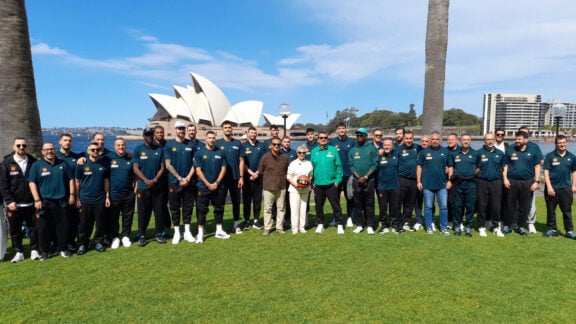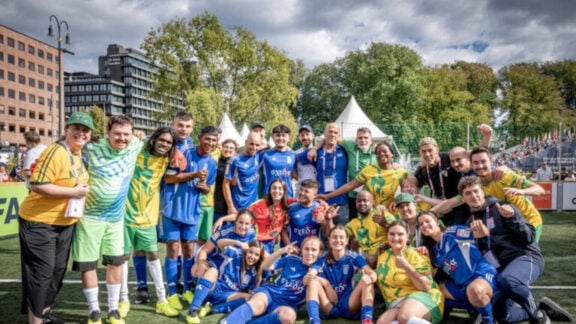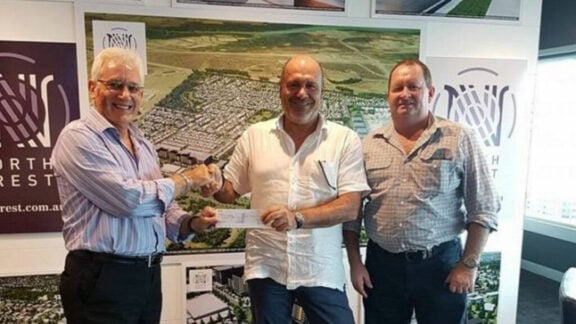“It’s a rare thing for a teacher to leave such a mark,” said Julian Burnside QC about the teacher Santo Costanzo whose memory was honoured by the school community of St John’s Greek Orthodox College on Monday night.
Mr Burnside was the first notable speaker to take to the lectern in honour of this teacher’s memory as part of the inaugural Santo Costanzo Inaugural Annual Memorial Oration; an event created to remember a teacher who left such a significant mark on not only his students’ education, but their lives.
“We judge a person’s character by their conduct, by what they do,” started Mr Burnside in his lecture to an audience made up of students, past and present, family and friends of the St John’s community and members of the Greek community.
“People remember Santo Costanzo for the way he treated them, for his generosity of spirit, for his kindness and understanding and so on.
“But we also judge a country’s character by it’s conduct … I’ve come to a rather unhappy conclusion that we are not doing particularly well.”
‘Human rights in Australia; Is this really who we are?’ was the title of Mr Burnside’s speech, and he delivered it in a way that left us all with a choice. We can either conduct ourselves as citizens of Australia with kindness, generosity and understanding – as Mr Costanzo did, or we can keep quiet and allow the government’s treatment of asylum seekers and their detention remain. But he reminded us that either choice we make, we are making a political stance.
He used a quote from “Power Politics” by Arundhati Roy as an analogy to emphasise this point, which says “…in the midst of putative peace, you could, like me, be unfortunate enough to stumble on a silent war. The trouble is that once you see it, you can’t unsee it. And once you’ve seen it, keeping quiet, saying nothing, becomes as political an act as speaking out. There’s no innocence. Either way, you’re accountable.” And looking towards the students, the future of Australia, he reminded them that they are accountable for their actions.
Mr Burnside began his oration by talking about his childhood in Melbourne in the 1950’s and the fear-mongering and racism that was thrust upon the Greek and Italian migrants in that era. And how we are hearing the same fear-mongering tactics employed now with new migrants to Australia.
“What we’ve forgotten is the immense benefit that Australian society has gained from the arrival of Italian and Greek migrant settlers. I can think of very few people indeed who would want to turn back the clock and return to the narrow cramped society we had in Australia in the ’50s,” he said.
“The fact is, the people that come to this country from other countries end up doing great things for this country, but we keep on forgetting it.”
He talked about the plight of the asylum seeker and the difficult decision they are faced with – to risk their lives and get on a boat, or stay and face persecution in the country of their birth. He spoke of – in great detail – what the asylum seeker is faced with before making the grave decision to risk their life and then asked “is there anyone in this hall who wouldn’t risk [their life] and get on the boat?” Adding in all the times he’s asked an Australian this question there isn’t one person who has said they wouldn’t do the same.
“But the curious thing is,” he adds, “the ones who get on the boat at the great risk of themselves – those are the ones we vilify, they’re the ones we pick on, they’re the ones we mistreat.”
He said that in the last 15 years or more, the 90 per cent of boat people assessed by the immigration department in Australia are deemed to be refugees legally entitled to our protection yet those “entitled to protection get locked up, are mistreated and vilified publicly – where is the sense in that?”
Looking up from his lectern again, Mr Burnside simply asked the audience, and especially the students, “what would Mr Costanzo do?”








